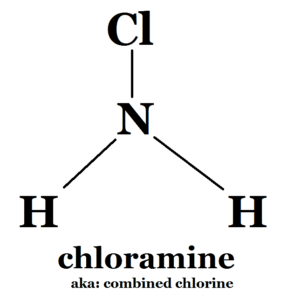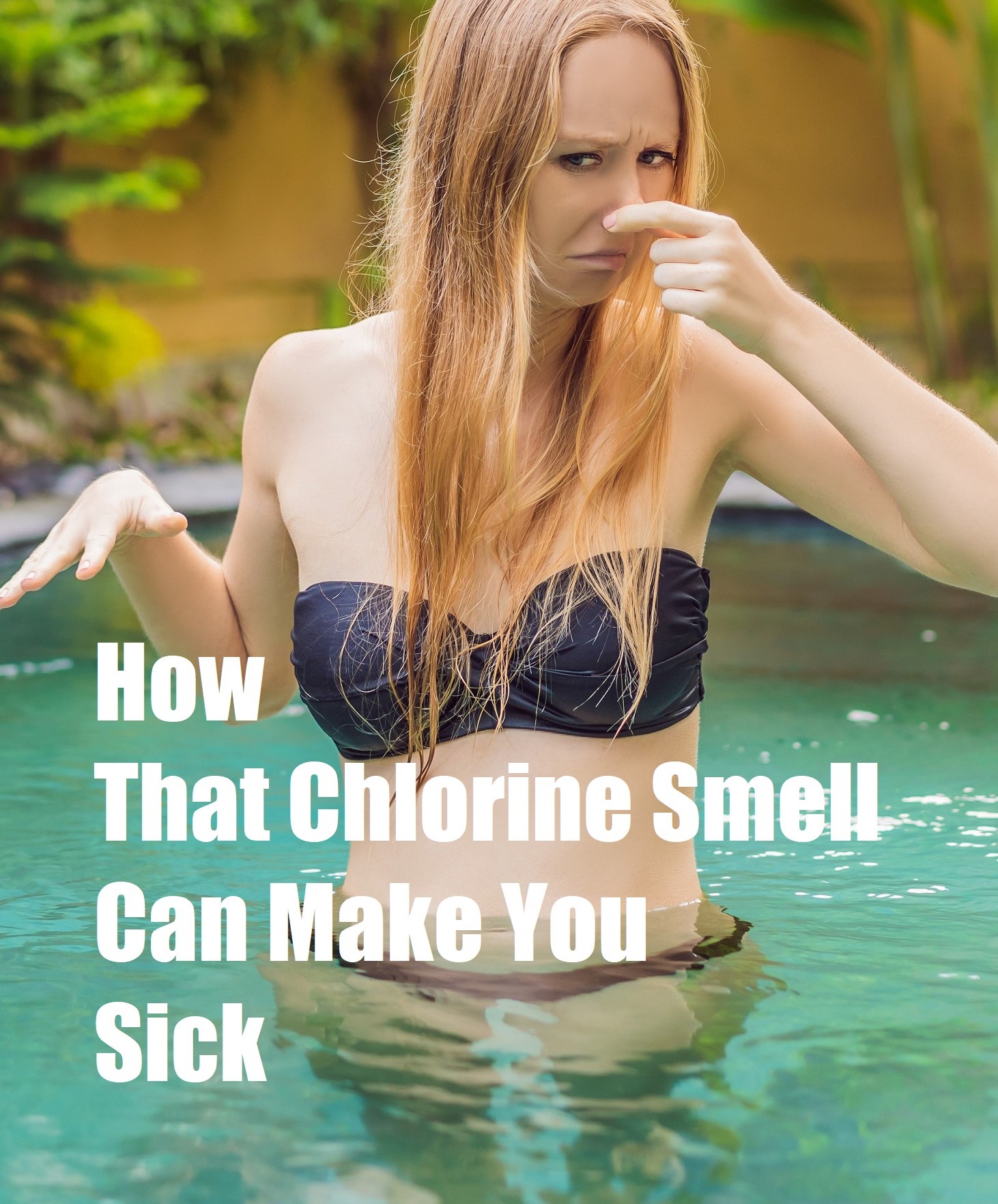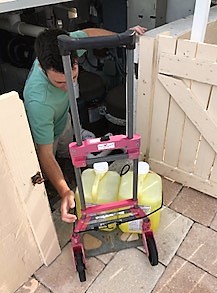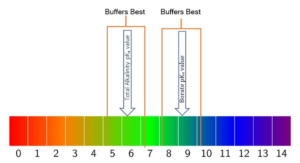Did you ever walk into an indoor pool and the second you enter, you get this smack in the face chlorine smell that literally brings tears to your eyes? ? I was chatting with a friend about a month or two back who has probably been in more natatoriums in her life (the room they keep the pool in) than I have been to swimming pools all together – FYI: that’s a lot of pools. The conversation touched upon that “chlorine smell” and the stinging eyes we associate with those types of venues. ?
I had reached out a week or two prior to that to my longtime friend and associate, Wayne Ivusich of Taylor Technologies, to see if he would be interested in putting something together for me and what he delivered, coincidentally, happened to be on this exact topic. I had first met Wayne back in ’92 (Yes, in this one the year we met plays a factor – you’ll see) back when we were both starting out in the swimming pool industry and both had full heads of hair. ? Here are Wayne’s words of wisdom as he lays down some pool chemistry:

Why do bad things happen to good treatment chemicals???
– Wayne Ivusich
When I was a kid (and some “friends” would say that was pre-electricity and the invention of indoor plumbing), I distinctly remember going to the local community pool and smelling the odor of chlorine as I neared the entrance. My parents would always say something like “oh they just added chlorine so the water’s safe to go in.” Of course, I ALWAYS listened to what my parents said (at least until I was 14 or 15) and happily jumped in the pool. Later, after the rashes appeared and my eyes were red, we just chalked it up to a mysterious something that caused it.

Manager of Education & Technical Services
Taylor Technologies, Inc.
Fast forward too many decades and add almost 28 years in the industry, I now, of course, realize that it wasn’t too much chlorine but rather too much “combined chlorine” (aka chloramines) in the water that was causing the rashes and irritation. Amazing what a couple of decades of knowledge does for you.
So…what it boils down to is that a strong “chlorine” odor and resulting rashes and/or red, itchy eyes mean too much COMBINED chlorine.
Remember, any form of chlorine that is added to water has the exact same chemical reaction, producing hypochlorous acid (HOCl) and a hypochlorite ion (OCl–) – otherwise known as “free chlorine.” Free chlorine is what you want in the water protecting bathers.
However, free chlorine will also react with organics in the water and become chloramines, which we also call “combined chlorines.” Chloramines are much weaker sanitizers and oxidizers than free chlorine. So where do the organics come from – mostly us! Our sweat and urine contribute organics to the water. So do lawn fertilizers. The chloramines are responsible for the typical “chlorine smell” we find in pool and spa waters.
This is NOT a good thing!
The problem is even worse in indoor environments with poor or non-existent fresh air exchange systems.
So…how do you tackle this problem? Breakpoint chlorination is the answer! Although it seems odd, you’re actually adding more chlorine – all at once – to eliminate the combined chlorine. To determine how much chlorine to add to achieve breakpoint, take your combined chlorine value and multiply that number by 10. The resulting number is how much in parts per million (ppm) of chlorine is added ALL AT ONCE to remove the combined chlorine reading. For example, you do your normal testing and determine that your combined chlorine level is 0.5 ppm. 0.5 x 10 = 5.0 ppm of chlorine needed to reach breakpoint. Consult dosage charts to determine the correct amount of chlorine to add based on how many gallons of water. Remember to keep pumps and filters running while doing this.
A couple of final reminders:
- NEVER add chlorine to a skimmer. Add chlorine in front of a return line to help it disperse throughout the water.
- NEVER breakpoint chlorinate with stabilized chlorine (dichlor or trichlor). Only use sodium hypochlorite, lithium hypochlorite, or calcium hypochlorite. Using dichlor or trichlor will add large amounts of stabilizer (cyanuric acid) to the water that may cause other problems.
And, finally, always listen to your parents!
?
In a conversation regarding the effect of water quality on competitive swimming events between Rudy Stankowitz (Aquatic Facility Training & Consultants) and Summer Sanders, the Olympian offered the following sentiment for us to share:
“The better we understand the chemistry between healthy pool water and healthy kids, the happier we will be and the faster our kids will swim!” – Summer Sanders, competitive swimmer and Olympic Gold Medalist ?, 1992 Barcelona.







great points and information
I have, some pools are worse than others but most seem to be alright smell wise. One of our local parks smells strongly of chlorine but there I don’t mind because the water gets cycled and spit back out at the splash zone.
I actually enjoy the smell of chlorine. It smells like nostalgia! lol But the fact that it can be bad makes sense.
That’s a very informative article. Thanks for sharing, and so true about the Chrlorine smell
Thank you for this useful information.
Great information! You’re right, it makes sense. It can be dangerous.
I need to share this with my brother, he works in a pool facility!
Great information! My oldest kiddo is a lifeguard, this is definitely something he should read
I never knew it made people sick – I LOVE the smell of chlorine for some reason haha
I hate the chlorine smell too! and now I know why I can’t stand it.
Your ending was the best- listen to your parents! Kids need that reminder 🙂
You spoke my mind! Chlorine smell in pools disgusts me.
The smell of chlorine is one of the reasons I don’t like the pool. Besides, the chlorine also irritates my eyes. While my kids and husband enjoy the pool. I just sit and read.
Managing chlorine in swimming pools is very important. Every needs to be aware of the best practices.
I hate chlorine smell…specially in my hair. Yuck!!
Woah, I never minded the smell of chlorine as a child. I love swimming everywhere especially in the summer
Wow, I didn’t know chlorine would actually make people sick. There were plenty of times when I walked into an indoor pool where the smell was overpowering. I figured it meant the pool was “extra clean.” This was a very insightful post!
*Samantha- http://www.herjournalblog.com
I’ve been in those indoor pools where the chlorine smell was awful. Thanks for letting me know what to do in those types of situations and for explaining it in an easy to read manner.
Thanks for explaining how to avoid this. Although it always baffles me when you go to a business and the chlorine is unbearable because they should know what they are doing
we have a pool so this is great to know we use salt water though.